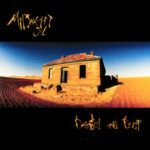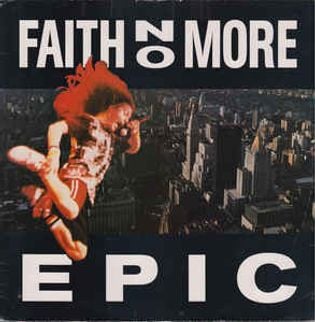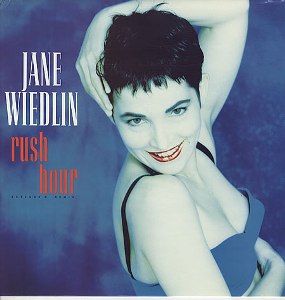 The 1980s were a period of musical experimentation and political activism, with artists increasingly using their platform to address pressing social issues. Among these artists, the Australian rock band Midnight Oil stood out for their unwavering commitment to political engagement, blending explosive rock instrumentation with pointed social commentary. In 1987, the band released “Beds Are Burning” as part of their critically acclaimed album Diesel and Dust, a song that would become an international anthem for Indigenous rights and environmental justice. With its driving rhythm, anthemic chorus, and urgent lyrical message, “Beds Are Burning” combined musical brilliance with moral conviction, marking a pivotal moment in both the band’s career and the global conversation around social and environmental justice.
The 1980s were a period of musical experimentation and political activism, with artists increasingly using their platform to address pressing social issues. Among these artists, the Australian rock band Midnight Oil stood out for their unwavering commitment to political engagement, blending explosive rock instrumentation with pointed social commentary. In 1987, the band released “Beds Are Burning” as part of their critically acclaimed album Diesel and Dust, a song that would become an international anthem for Indigenous rights and environmental justice. With its driving rhythm, anthemic chorus, and urgent lyrical message, “Beds Are Burning” combined musical brilliance with moral conviction, marking a pivotal moment in both the band’s career and the global conversation around social and environmental justice.
At its core, “Beds Are Burning” is a song of protest. It addresses the forced displacement of Aboriginal Australians from their traditional lands, demanding recognition, justice, and restitution. The track’s power lies in its seamless fusion of politically charged lyrics and compelling rock sensibility. Lead singer Peter Garrett, with his distinctive, commanding vocal delivery, transforms the song into both a rallying cry and a lament, balancing indignation with a call to action. The combination of urgent rhythm, memorable guitar riffs, and the chorus that declares, “The time has come to say fair’s fair”, gives the song a transcendent quality, turning a local political issue into a global statement about justice and equality.
Midnight Oil and Their Activist Roots
Formed in Sydney in 1972, Midnight Oil became known for their intense live performances and socially conscious lyrics. By the mid-1980s, the band had established a reputation not just as rock musicians, but as committed activists. Peter Garrett’s later involvement in politics—as a member of the Australian Parliament and minister for environment and Indigenous affairs—reflects the sincerity and consistency of the band’s advocacy.
Diesel and Dust, the album that features “Beds Are Burning,” was a culmination of Midnight Oil’s engagement with Indigenous issues, inspired in part by the band’s participation in the Blackfella/Whitefella tour, which brought attention to Aboriginal communities in remote regions of Australia. The album and its lead single were not just musical achievements—they were vehicles for raising awareness and galvanizing action around issues of land rights, social justice, and environmental stewardship.
Lyrics and Message
“Beds Are Burning” is direct, uncompromising, and evocative. Its lyrics highlight the historical injustices faced by Aboriginal Australians, while also emphasizing the moral urgency of restitution. The opening lines set the tone:
“Out where the river broke / The bloodwood and the desert oak / Holden wrecks and boiling diesels / Steam in forty-five degrees”
These vivid images transport listeners to the harsh and unforgiving Australian landscape, grounding the song’s political message in a tangible reality. The chorus—“The time has come to say fair’s fair / To pay the rent, to pay our share”—functions as both a moral imperative and a rallying cry, emphasizing the need for accountability and justice.
The song’s genius lies in its ability to combine specificity with universality. While it addresses a particular issue—the forced removal of Indigenous Australians from their lands—the themes of justice, fairness, and accountability resonate globally, allowing listeners from diverse backgrounds to connect with its message. It is a rare example of a protest song that balances immediacy, clarity, and poetic resonance, ensuring both musical enjoyment and ethical engagement.
Musical Composition and Style
Musically, “Beds Are Burning” is a masterclass in rock songwriting. The track opens with a rhythmic pulse created by drummer Rob Hirst and bassist Peter Gifford, immediately establishing momentum and intensity. Guitarist Jim Moginie layers crisp, driving riffs that provide both texture and propulsion, while Garrett’s vocals soar above the instrumentation, commanding attention without overpowering the arrangement.
The song’s structure is deceptively simple, relying on repetition and rhythmic insistence to build urgency. The chorus, with its emphatic declaration of fairness, is instantly memorable, allowing audiences to sing along and participate in the song’s call to action. Harmonies and background vocals accentuate the anthemic quality, while the interplay between rhythm and melody maintains tension and focus. The track’s sonic architecture reflects its political intent: persistent, urgent, and impossible to ignore.
Cultural and Political Impact
Upon its release, “Beds Are Burning” quickly became more than just a hit single; it was a cultural phenomenon. In Australia, the song helped raise awareness of Aboriginal land rights, contributing to public discourse and political action. Internationally, it resonated as a universal anthem of justice, becoming one of the first Australian rock songs to achieve major global recognition while maintaining a strong political message.
The song’s impact extended beyond radio and charts. Midnight Oil performed “Beds Are Burning” at major events, including the 1988 ARIA Music Awards and international music festivals, amplifying its message to audiences worldwide. Its accompanying music video, with imagery of Australian landscapes and symbolic references to dispossession, further reinforced the song’s themes. The combination of artistry and activism ensured that the track remained relevant not just as entertainment, but as a tool for social awareness and change.
Reception and Legacy
Critically, “Beds Are Burning” was lauded for its potent combination of musicality and moral urgency. Reviewers praised the song’s ability to communicate complex social issues without sacrificing accessibility or catchiness. Commercially, the track was a major success, reaching top ten chart positions in multiple countries, including Australia, the United Kingdom, and Canada, and achieving widespread airplay in the United States.
Over three decades later, the song continues to be celebrated as one of Midnight Oil’s defining works and a landmark in the history of politically engaged music. Its enduring relevance is evident in covers by contemporary artists, inclusion in documentaries and films, and continued performance at events advocating for Indigenous rights and social justice. The track has become synonymous with the band’s commitment to activism, a musical manifesto that demonstrates the power of rock music to inspire awareness and action.
Live Performances and Audience Connection
Live performances of “Beds Are Burning” amplify the song’s urgency and impact. Midnight Oil’s concerts are known for their intensity, with Garrett’s commanding stage presence and physical energy bringing the lyrics to life. The audience is invited to participate, whether through singing the chorus, clapping along, or simply absorbing the emotional resonance of the performance.
These live renditions reinforce the song’s dual function as both entertainment and advocacy. The kinetic energy of the band, combined with the moral clarity of the lyrics, transforms the track into a shared experience that transcends the confines of the stage, creating a communal sense of purpose and awareness.
Musical Craft and Technical Excellence
From a technical perspective, “Beds Are Burning” exemplifies expert songwriting and performance. Its balance of rhythm, melody, and lyrical clarity demonstrates the band’s meticulous approach to composition. The rhythmic drive, created by the interplay between drums and bass, ensures a sense of forward motion that mirrors the urgency of the song’s message. Guitar riffs are sharp, deliberate, and evocative, supporting the narrative without overshadowing it. Garrett’s vocals, with their dynamic range and emotional nuance, elevate the track from a standard rock song to a commanding anthem of social justice.
The production quality of Diesel and Dust, handled with care and precision, preserves the immediacy of the performance while enhancing the sonic impact. The layering of instruments, the clarity of the vocals, and the attention to dynamic contrast all contribute to a track that is both musically compelling and ethically resonant.
Influence on Music and Activism
“Beds Are Burning” has influenced both musicians and activists worldwide. Its success demonstrated that popular music could carry meaningful social messages without alienating audiences or sacrificing artistic integrity. Bands across genres have cited Midnight Oil’s work as inspiration for integrating political engagement into their music.
The song also remains a symbol of the power of music to raise awareness and drive social change. It has been used in campaigns, educational programs, and media initiatives aimed at promoting Indigenous rights, environmental awareness, and social justice, proving that a song can transcend entertainment to become a force for global impact.
Conclusion: A Timeless Anthem of Justice
Released in 1987, Midnight Oil’s “Beds Are Burning” is more than a rock song; it is a call to conscience, a declaration of moral responsibility, and a testament to the power of music as activism. With its driving rhythm, memorable riffs, and urgent lyrics, the track encapsulates the band’s commitment to social justice while remaining a compelling piece of rock artistry.
The song’s enduring relevance lies in its ability to address a specific historical injustice while resonating universally. Its themes of fairness, accountability, and respect for human and environmental rights continue to inspire listeners across generations. “Beds Are Burning” is an exemplar of how music can merge entertainment, artistry, and advocacy, creating a work that is as impactful today as it was upon its release.
More than three decades after it first reached audiences, the song remains a cultural touchstone, a musical call to action, and a reminder of the enduring power of rock music to confront injustice, provoke thought, and ignite change. Midnight Oil’s masterpiece stands as a beacon of artistic and ethical integrity, proving that when music and activism meet, the result can resonate across time, geography, and hearts worldwide.


